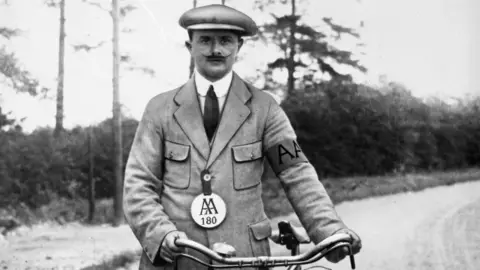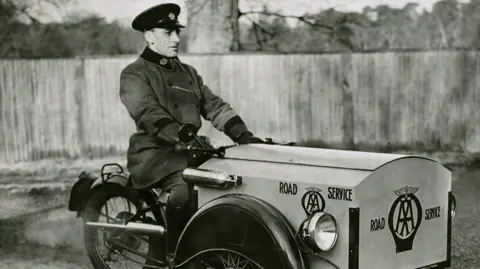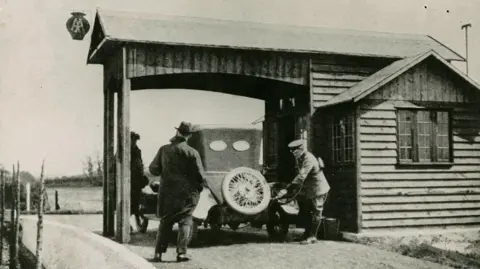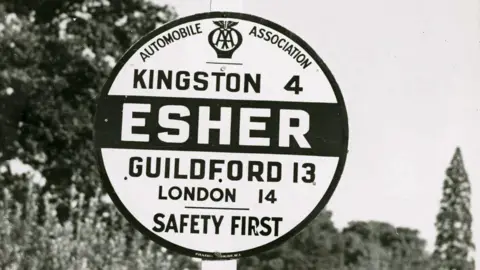Salutes and sentry boxes mark 120 years of The AA
 The AA
The AAThe AA is celebrating 120 years since it was founded by a handful of motoring enthusiasts.
The organisation traces its origins to a committee that aimed to warn drivers of police speed traps.
It took the name The Automobile Association on 26 June 1905 and went on to open England's first petrol station, erect early road signs and improve mapping.
The Basingstoke-based group now supports 14 million members through its fleet of yellow breakdown vans and other services.
 The AA
The AAEarly AA patrol workers were deployed on bicycles with the aim of "indicating dangers on the road and helping motorists who had broken down", according to the firm's website.
An AA badge on a car grille indicated membership and a requirement for the patrolman to salute the driver, sometimes conveying a message.
In a celebrated legal case - Betts v Stevens (1909) - a patrolman was convicted of obstructing police by deliberately giving a warning of a speed trap.
Subsequently, patrols stayed within the law by omitting the iconic AA salute in order to warn drivers.
 The AA
The AAEngland's first petrol station was opened by the organisation at Aldermaston, Berkshire, in 1919.
The AA also erected early location signs and roadside sentry boxes equipped with telephones.
The custom of saluting ended in 1962, the same year that yellow AA vans began to replace patrol motorcycles.
In recent years, the organisation has campaigned on motoring issues, calling for new young drivers to be banned from carrying passengers for six months and for smart motorways to be scrapped.
 The AA
The AAThe AA has competition from a host of other breakdown firms, as well as in the insurance, travel and financial sectors.
It reported £1.9bn of net debt in April, down from £2.2bn the previous year.
Chief executive Jakob Pfaudler said: "It is an honour to lead The AA as it celebrates its 120th anniversary.
"As the UK automotive sector evolves with electric vehicles, connected cars and autonomous technology, The AA and our patrols will always be needed to keep people on the road."
You can follow BBC Hampshire & Isle of Wight on Facebook, X (Twitter), or Instagram.
